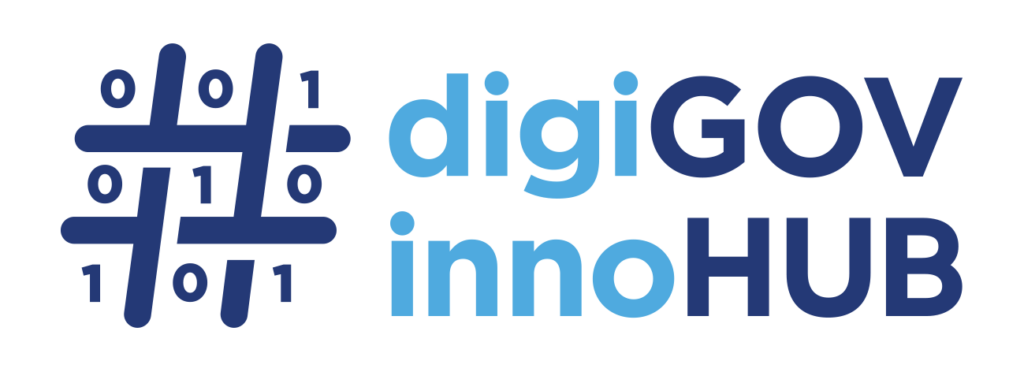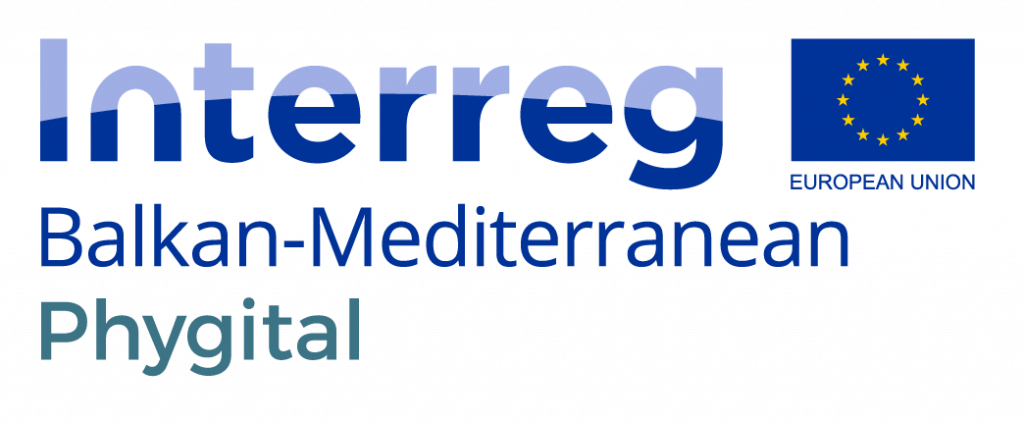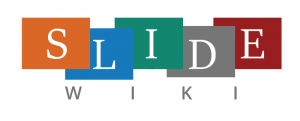Κόμβος Καινοτομίας για την Ψηφιακή Διακυβέρνηση GR digiGOV-innoHUB
Ο Ευρωπαϊκός Κόμβος Καινοτομίας για την Ψηφιακή Διακυβέρνηση GR digiGOV-innoHUB, υποστηρίζει την ανάπτυξη δημόσιων υπηρεσιών νέας γενιάς για την Κεντρική Διοίκηση, την Τοπική Αυτοδιοίκηση και τους παραγωγικούς τομείς της οικονομίας, αξιοποιώντας προηγμένες τεχνολογίες, όπως AI, Blockchain, IoT, mobileInternet, Cloud και HighPerformanceComputing, ανοιχτά δεδομένα και ανοιχτά πρότυπα, ακολουθώντας τις Ευρωπαϊκές κατευθύνσεις για την τεχνολογική ανοικτότητα στη Δημόσια Διοίκηση και παροτρύνοντας τη χρήση του EUPL.
Οι στόχοι του GR digiGOV-innoHUB ευθυγραμίζονται με το Πρόγραμμα Ψηφιακή Ευρώπη, τη Βίβλο Ψηφιακού Μετασχηματισμού 2020-2025, καθώς και με άλλες ευρωπαϊκές και εθνικές πολιτικές όπως, ενδεικτικά, το Πλαίσιο για την Προώθηση της Καινοτομίας στο Δημόσιο Τομέα του ΟΟΣΑ, λαμβάνοντας υπόψη τις υπηρεσίες του gov.gr, του eugo.gov.gr και το Εθνικό Μητρώο Διαδικασιών.
AI4Deliberation
Το έργο AI4Deliberation έχει ως στόχο την παροχή αξιόπιστων και ηθικών εργαλείων τεχνητής νοημοσύνης, καθώς και λεπτομερών κατευθυντήριων γραμμών για την υποστήριξη των κυβερνήσεων στην θεσμοθέτηση, εφαρμογή και αξιολόγηση πολυδιάστατων, παιχνιοποιημένων, ευρείας κλίμακας διαδικασιών δημόσιας διαβούλευσης. Στόχος μας είναι να κατανοηθει πώς τα εργαλεία τεχνητής νοημοσύνης μπορούν να χρησιμοποιηθούν για να υποστηρίξουν τις δημόσιες διαβουλεύσεις σε δημοκρατίες και, μέσω αυτού, να δημιουργήσουμε μια ελεύθερα διαθέσιμη εργαλειοθήκη τεχνητής νοημοσύνης που μπορούν να χρησιμοποιήσουν ομάδες οπουδήποτε στον κόσμο για να βελτιώσουν τις δικές τους διαβουλεύσεις.
S.T.E.P.S
To S.T.E.P.S. είναι ένα έργο που έχει σχεδιαστεί για τον εκδημοκρατισμό της πρόσβασης στη ρομποτική και την εκπαίδευση STEM, αξιοποιώντας τεχνολογίες ανοιχτού κώδικα και ελεύθερο λογισμικό για πιο προσβάσιμους και προσαρμόσιμους εκπαιδευτικούς πόρους για μαθητές και εκπαιδευτικούς από διάφορα υπόβαθρα.
Skills4EOSC
Skills4EOSC ‘Skills for the European Open Science commons: creating a training ecosystem for Open and FAIR science’ is funded by the European Commission Horizon Europe programme (GA 101058527). Coordinated by Consortium GARR and supported by 44 partners in 18 European countries, Skills4EOSC will set up a pan-European network of competence centres to speed up the training of European researchers and harmonise the training of new professional figures for scientific data management.
Παλαιότερα έργα
+RESILIENT
Mediterranean Open REsouRcEs for Social Innovation of SociaLly ResponsIve ENTerprises

+RESILIENT puts together a 4-helix partnership of 8 MED countries to tackle the need for innovation conducive to increased socially-responsive competitiveness of SMEs & stimulate new jobs, especially for companies operating in the social economy.
It aims to kickstart a process of policy change at regional level in the involved areas resulting in the integration of successful elements into the new Cohesion policy (EU2020+).
The overall objective is to positively influence, adapt/change the different structural elements of policy governing “clusters with high social vocation and responsiveness” (SVRC) by leveraging on innovation dynamics led by technology, open data & successful models with social relevance & impact, creating socially-responsive value chains at a transnational level.
SVRC are usually codified only at local level, so the project addresses the transnational dimension as networking and capacity building approach to achieve a critical mass, increase horizontal opportunities for SMEs, mobility, employability and for scaling up into Cohesion Policy and Funds.
It is an integrated project that establishes a structural approach to policy & practice improvement of emerging dynamics in social innovation through an overarching process based on the intertwined use of open data & the creation of a transnational socially-responsive value chain. This includes studying existing initiatives, adapting and testing, with the final objective of
capitalizing them in the MED area.
Partners
Veneto Region VR ITALY
AIX-MARSEILLE UNIVERSITY -FRANCE
Foundation for Partnership and Civil Society Development – CROATIA
Region of Istria – CROATIA
RCDI – Development and Innovation Network – PORTUGAL
Region of East Macedonia and Thrace (REMTH) – Regional Development Fund – GREECE
Treviso and Belluno Chamber of Commerce – ITALY
Technological Institute of Aragon – SPAIN
Greek Free Open Source Software Society – GREECE
Barcelona Activa SA SPM – SPAIN
OPEN UNIVERSITY OF CATALONIA – UOC – SPAIN
Foundation for Improvement of Employment Possibilities PRIZMA, an Institution – SLOVENIA
National Association of Italian Municipalities – ITALY
Union of Chambers of Commerce and Industry of Albania
Total Budget: 2,786,750.33 €
Project Site : https://plus-resilient.interreg-med.eu/
ODEON: Open Data for European Open iNovation
The central aim of the EU 2020 Strategy is to put Europe’s economies onto a high and sustainable growth path. To this end, Europe must strengthen its innovative potential and use its resources in the best possible way. One of these resources is public data – all the information of the public bodies in the EU produce, collect or pay for.
Such information is for example: geographical information, statistics, weather data, data from publicly funded research project. etc. This information has a significant – currently untapped – potential for re-use in new products and services while overall economic gains from opening this resource could amount to € 40 billion a year in the EU. Opening public data will also foster the participation of citizens in political and social life and contribute to policy areas such as the environment.
ODEON project addresses the exploitation of Open Data and aims at strengthening the relationship between digital agenda, e-government strategy, the open data platforms implemented at several levels and the availability of Open Data to support innovation process within Interreg Mediterranean Area.
Main project objectives
The main goal of the ODEON project is the establishment and testing of the model and instrument connected with this model, needed to build an innovative data cluster, made out of SMEs, start-ups & research institutes. The goal of this cluster is to develop Open Data’s entrepreneurial, market and social value.
Established clusters will support local sustainable service providers (Data HUBs), which have the ability to influence public institutions, to publish open data of good quality. By doing so, they will enable SMEs and start-ups. In return, the developed products and services will develop beyond the regional borders and have an impact on Data Economy, which will then shape the sustainable growth of the Mediterranean area. Pilot activities of the ODEON project will also influence broader policies on data mining.
ODEON will through its activities address both local, regional and national authorities to implement better e-government policies. It will also address the existing clusters and SMEs in the field of Open Data in digital technologies with the goal to encourage entrepreneurship. ODEON is not meant only to increase Mediterranean’s economic worth, but also to boost social innovation.
Main project outputs
Project partners committed to realizing the following goals:
- Public actors supported with their e-governance policies.
- To increase the availability of free and good quality Open Data for all quadruple helix actors.
- Assisting SMEs in promoting new products and services with Open Data
- Local Centers established to support the Data Economy (Data HUBs).
Project partners
Veneto Region, ITA
Chamber of Economy Montenegro, MNE
Croatian Agency for SMEs, Innovations and Investments, CRO
Technology Park Ljubljana Ltd, SLO
Greek Free Open Source Software Society, GR
Government of Aragon, ESP
Agency for Sustainable Mediterranean Cities and Territories, FRA
Padua Chamber of Commerce Industry Crafts Agriculture, ITA
Total budget: 2,013,842.76 €
Project page: https://odeon.interreg-med.eu/
PHYGITAL
PHYGITAL- Catalysing innovation and entrepreneurship unlocking the potential of emerging production and business models
The starting point of the project has been a socio-institutional problem and a tentative techno-economic solution. In the context of the recent developments in the social economic sector, an increasing number of people has been contributing to social innovation projects, striving to create sustainable options for surpassing the deep economic, social and environmental crisis in Europe. However, these communities face certain challenges in creating sustainable livelihoods and in supporting the appropriate organisational and governance structures. At the same time, the wide diffusion of ICT and the decentralisation of the means of information production pose as an untapped opportunity, in providing new techno-economic blueprints for sustainability.
PHYGITAL aims to pilot, evaluate and promote an emerging production and business model, based on the conjunction of a global digital commons of knowledge, stemming from various open source projects, with distributed manufacturing technologies, such as three-dimensional (3D) printers and Computerised Numerical Control (CNC) machines. Seeds of this model, codified as “design global, manufacture local” (DGML), have been exemplified by numerous successful commons-oriented projects on a global level, introducing innovative organisational and business patterns. The project is expected to increase local capacities for innovation, by harnessing global knowledge to address local challenges. At the same time, strong transnational cooperation linkages will be created, in support of innovative entrepreneurial ventures, including social enterprises.
PHYGITAL adopts a multi-level approach, in order to bring together diverse stakeholders and promote synergy on local, transnational and global level, by: (a) developing a multilingual open knowledge platform, which will host, organise & diffuse the global knowledge commons; (b) developing and connecting open collaborative production spaces (makerspaces), equipped with distributed manufacturing technologies, to catalyse the relevant physical practices in scalable pilot programmes, taking place in 3 thematic areas: agriculture (Greece); social arts practices (Cyprus) & cultural heritage (Albania) and (c) supporting the emerging entrepreneurial practices through the Phygital Network, an open, decentralised network of businesses & professionals, dedicated to the empowerment of innovation and social entrepreneurship on transnational level.
The PHYGITAL target groups include restless entrepreneurs and freelancers; local SMEs and micro-enterprises from different sectors, as well as activists, hobbyists and communities contributing to open source and social innovation projects and the wider public. The added value of the project lies in the empowerment of more people to adopt sustainable patterns and work towards making a positive social impact, by co-designing and co-producing new solutions for local challenges and openly sharing the benefits on a global level.
More info available at: https://phygitalproject.eu/
| Budget | 855.172,79 |
BRITEC
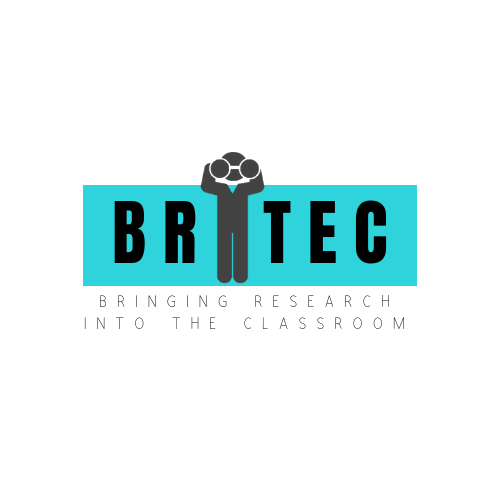
Europe’s shortage of STEM skilled labour force is well documented, and the lack of STEM-skilled labour is predicted to be one of the main obstacles to economic growth in the coming years. Furthermore, most European countries are lagging behind in international educational studies such as PISA and TIMMS, particularly in areas such as science, mathematics and reading.
There is a real need for innovative approaches to increasing the motivation of pupils towards STEM subjects and for offering teacher training into new ways of introducing science in the classroom. Additionally, there is still much work to be done in improving the image of scientists at the societal level. Initiatives that help demystify science and which connect pupils with real scientists can create a long lasting positive impact with regards to the image of inacessilbe scientists. Moreover, connecting schools with the world of research is essential in ensuring that the research sector will benefit of much needed new talent in its various fields, and that students are thought to think like scientists, weighing evidence to draw conclusions, and learning how to navigate the claims and counterclaims bombarding us in our everyday lives (a crucial need identified through OECD’s PISA 2015). An additional impact is foreseen at the level of universities and research institutions, who have the chance to present themselves as active players in local communities, supporting young talent, contributing to scientific advancements and taking a real interest in local issues.
In this context, BRITEC proposes introducing the Citizen Science (CS) approach in schools as a way of engaging pupils in research practices. CS is a relatively new way of conducting scientific research, by enlisting the support of ordinary citizens into the collection and interpretation of large amounts of data. BRITEC aims to offer teachers and researchers from throughout Europe the tools and training to bring research into classrooms by engaging pupils in the processes of scientific research (from helping formulate research questions to collecting and analysing information and drawing pertinent conclusions). BRITEC proposes to:
- Support the exchange between research institutions and schools. The project will create a community of practice for teachers and researchers to exchange on how to bring research into the classroom and provide input to project activities.
- Co-create and pilot Citizen Science initiatives in schools. CS projects will be run at the national level, following the collaboration between schools and universities/research institutions. Teachers and researchers collaborating in these projects will document their experiences and present them in the form of lesson plans and science videos, which will be published on the project page. A Citizen Science Toolkit, including guidelines, resources and examples of good practice in implementing CS at school will be published.
- Provide online training for teachers and recommendations for stakeholders into engaging schools and researchers into joint initiatives. To ensure that CS initiatives developed in the project do not remain limited to local audiences, a Massive Open Online Course on including citizen science in schools, addressed to an international community of teachers and researchers, will be organised via the European Schoolnet Academy.
The transnational dimension of this strategic partnership is crucial in providing a set of qualitative guidelines for the implementation of Citizen Science in schools, which will be transferable among schools and research institutions across Europe. Moreover, as much as local actors need to engage with one another, it is essential to contextualise actions in a European environment and to allow for the exchange of good practices internationally. An important element of BRITEC is to build an international community of teachers and researchers with the aim of setting the conditions for the international collaboration in the field of school education and research.
eThemisID
eThemisID: Integrating the Greek Justice System with eIDAS and e-signature services
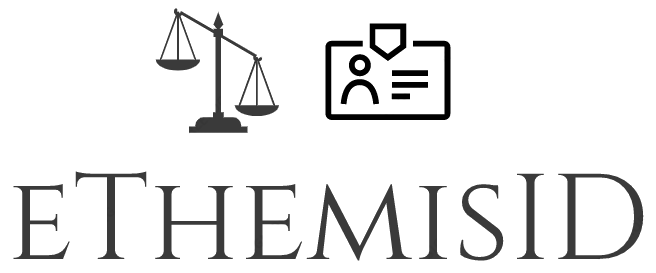
Το ευρωπαϊκό έργο eThemisID εστιάζει στη διασύνδεση ηλεκτρονικών υπηρεσιών της Δικαιοσύνης στην υποδομή eIDAS. Ειδικότερα, στοχεύει στην ενσωμάτωση των ψηφιακών υπηρεσιών υποδομής (DSI) eID DSI και eSignature με τα υπάρχοντα συστήματα του ελληνικού συστήματος Δικαιοσύνης προκειμένου να καταστεί δυνατή η διασυνοριακή πιστοποίηση ταυτότητας eIDAS και υπηρεσιών ηλεκτρονικής υπογραφής στους τελικούς χρήστες, σε πανευρωπαϊκό επίπεδο.
Η πύλη του Συμβουλίου Επικρατείας, ως πάροχoς υπηρεσιών, θα συνδεθεί με τον ελληνικό κόμβο eIDAS, επιτρέποντας στους πολίτες της ΕΕ και τα νομικά πρόσωπα που έχουν διοικητικές / νομικές διαφορές με τον ελληνικό Δημόσιο Τομέα, να χρησιμοποιούν ηλεκτρονικές υπηρεσίες για την επικοινωνία των σχετικών ελληνικών αρχών. Η διασυνοριακή πιστοποίηση βάσει του eIDAS θα καλύπτει μία σειρά από ηλεκτρονικές υπηρεσίες του ελληνικού Συμβουλίου Επικρατείας.
Η υλοποίηση της διασύνδεσης της πύλης με τον ελληνικό κόμβο eIDAS θα διατεθεί ως πακέτο ελεύθερου λογισμικού/ λογισμικού ανοικτού κώδικα ώστε να μπορεί να χρησιμοποιηθεί από τα υπόλοιπα ελληνικά δικαστήρια για εύκολη ενσωμάτωση.
Επιπλέον, το έργο θα υποστηρίζει και τις δυνατότητες ψηφιακής υπογραφής και επικύρωσης – eSeal, για όλα τα ηλεκτρονικά έγγραφα που παράγονται μέσω αυτοματοποιημένων μηχανισμών παράδοσης στην ελληνική πύλη υπηρεσιών του Συμβουλίου της Επικρατείας. Με αυτόν τον τρόπο όλα τα έγγραφα που παράγονται κατόπιν αιτήματος του πολίτη / κάποιας νομικής οντότητας, θα υπογράφονται ψηφιακά. Οι δυνατότητες eSeal θα ενεργοποιηθούν για τα 41 διοικητικά δικαστήρια του ελληνικού Συμβουλίου της Επικρατείας.
Το πακέτο εργαλείων ανοιχτού κώδικα θα προετοιμαστεί επίσης για άλλους οργανισμούς, όπως για παράδειγμα για άλλα δικαστήρια που επιθυμούν να χρησιμοποιήσουν την υπηρεσία αποστολής, η οποία είναι συμβατή με το eIDAS.
Μέχρι το τέλος της δράσης, η ελληνική πύλη του Συμβουλίου της Επικρατείας θα διατεθεί σε περιβάλλον παραγωγής για διασυνοριακή πιστοποίηση (μέσω eIDAS) και για eSeal δυνατότητες, με βάση το εργαλείο DSI DSS eSignature.
Duet
DIGITAL URBAN EUROPEAN TWINS
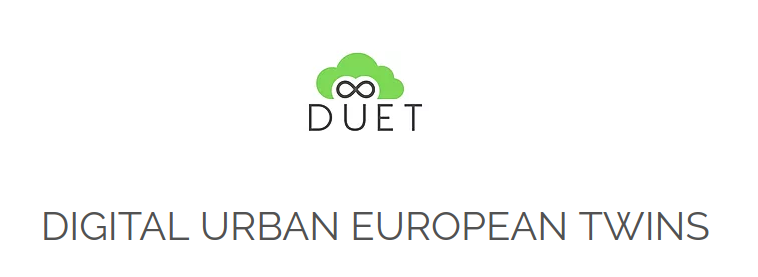
DUET is a brand new innovation initiative which leverages the advanced capabilities of cloud and high-performance computing (HPC), in the form of Digital Twins, to help public sector decision-making become more democratic and effective. By creating digital replica’s of a city, people, no matter their background, can use the Digital Twins 3D and 2D interfaces for easy policy impact exploration and experimentation across entire cities and regions.
DUET’s use of Digital Twins truly changes the policy game, disrupting the field of Smart Cities and transitioning to a new age of Responsive Cities. With Responsive Cities, solutions are not designed around citizens, they are designed with the citizen placed firmly at the center of the action. Where Smart Cities are technology driven and produce large amounts of data from fixed or centrally controlled sensors, Responsive Cities recognise that citizens are also a major player in data generation which helps to shape real-time city decisions.
Project Page: https://www.digitalurbantwins.com/
Slidewiki
Large-scale pilots for collaborative OpenCourseWare authoring, multiplatform delivery and Learning Analytics
A major obstacle to increase the efficiency, effectiveness and quality of education in Europe is the lack of widely available, accessible, multilingual, timely, engaging and high-quality educational material (i.e. OpenCourseWare). The creation of comprehensive OpenCourseWare (OCW) is tedious, time-consuming and expensive, with the effect, that often courseware employed by teachers, instructors and professors is incomplete, outdated, inaccessible to those with disabilities and dull. With the open-source SlideWiki platform (available at SlideWiki.org) the effort of the creation, translation and evolution of highly-structured remixable OCW can be widely shared (i.e. crowdsourced). Similarly to Wikipedia for encyclopaedic content, SlideWiki allows (1) to collaboratively create comprehensive OCW (curricula, slide presentations, self-assessment tests, illustrations etc.) online in a crowdsourcing manner, (2) to semi-automatically translate this content into more than 50 different languages and to improve the translations in a collaborative manner and (3) to support engagement and social networking of educators and learners around that content. SlideWiki is already used by hundreds of educators, thousands of learners. Several hundred comprehensive course materials are available in SlideWiki in dozens of languages.
In this large-scale trial project, we will further mature the SlideWiki technology platform, integrate it with a state-of-the-art MOOC delivery platform and perform four large-scale trials in (1) secondary education, (2) vocational and professional training, (3) higher education and (4) community-driven open-education. Each of these large-scale trials will be performed with hundreds of educators and thousands of learners in countries all over Europe. A particular focus of the technology development and testing in the trials will be the suitability for academics, teachers and learners with disabil



